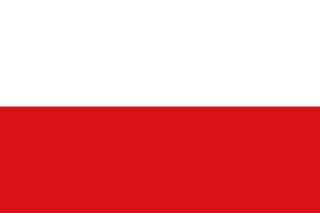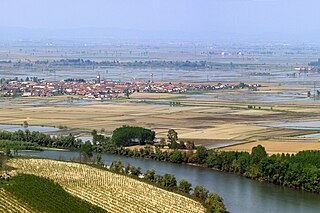The term federalist describes several political beliefs around the world. It may also refer to the concept of parties, whose members or supporters call themselves Federalists.

Tyrol is an Austrian federal state. It comprises the Austrian part of the historical Princely County of Tyrol. It is a constituent part of the present-day Euroregion Tyrol–South Tyrol–Trentino. The capital of Tyrol is Innsbruck.
Unicameralism is a type of legislature consisting of one house or assembly that legislates and votes as one. Unicameralism has become an increasingly common type of legislature, making up nearly 60% of all national legislatures and an even greater share of subnational legislatures.

The regions of Italy are the first-level administrative divisions of the Italian Republic, constituting its second NUTS administrative level. There are twenty regions, five of which are autonomous regions with special status. Under the Constitution of Italy, each region is an autonomous entity with defined powers. With the exception of the Aosta Valley and Friuli-Venezia Giulia (2018–2020), each region is divided into a number of provinces.

Friuli-Venezia Giulia is one of the 20 regions of Italy and one of five autonomous regions with special statute. The regional capital is Trieste on the Gulf of Trieste, a bay of the Adriatic Sea.
ISO 3166-2:IT is the entry for Italy in ISO 3166-2, part of the ISO 3166 standard published by the International Organization for Standardization (ISO), which defines codes for the names of the principal subdivisions of all countries coded in ISO 3166-1.

The provinces of Italy are the second-level administrative divisions of the Italian Republic, on an intermediate level between a municipality and a region. Since 2015, provinces have been classified as "institutional bodies of second level".

The Irish Rugby Football Union (IRFU) is the body managing rugby union in the island of Ireland. The IRFU has its head office at 10/12 Lansdowne Road and home ground at Aviva Stadium, where adult men's Irish rugby union international matches are played. In addition, the Union also owns the Ravenhill Stadium in Belfast, Thomond Park in Limerick and a number of grounds in provincial areas that have been rented to clubs.

India is a federal union comprising 28 states and 8 union territories, for a total of 36 entities. The states and union territories are further subdivided into 806 districts and smaller administrative divisions.
An ecclesiastical province is one of the basic forms of jurisdiction in Christian churches, including those of both Western Christianity and Eastern Christianity, that have traditional hierarchical structures. An ecclesiastical province consists of several dioceses, one of them being the archdiocese, headed by a metropolitan bishop or archbishop who has ecclesiastical jurisdiction over all other bishops of the province.

The province of Piacenza is a province in the Emilia-Romagna region of Italy. Its provincial capital is the city Piacenza. As of 2016, it has a total population of 286,572 inhabitants over an area of 2,585.86 square kilometres (998.41 sq mi), giving it a population density of 111.38 inhabitants per square kilometre. The city Piacenza has a population of 102,269, as of 2015. The provincial president is Patrizia Barbieri and it contains 48 comuni. The province dates back to its founding by the Romans in 218 BCE.

The province of Alessandria is an Italian province, with a population of some 425,000, which forms the southeastern part of the region of Piedmont. The provincial capital is the city of Alessandria.

Italia, also referred to as Roman Italy, was the homeland of the ancient Romans. According to Roman mythology, Italy was the ancestral home promised by Jupiter to Aeneas of Troy and his descendants, Romulus and Remus, who were the founders of Rome. Aside from the legendary accounts, Rome was an Italic city-state that changed its form of government from Kingdom to Republic and then grew within the context of a peninsula dominated by the Gauls, Ligures, Veneti, Camunni and Histri in the North, the Etruscans, Latins, Falisci, Picentes and Umbri tribes in the Centre, and the Iapygian tribes, the Oscan tribes, and Greek colonies in the South.

The United Provinces of Central Italy, also known as the Confederation of Central Italy or General Government of Central Italy, was a short-lived military government established in 1859 by the Kingdom of Piedmont-Sardinia. It was formed by a union of the former Grand Duchy of Tuscany, the Duchy of Parma, the Duchy of Modena, and the Papal Legations, after the Second Italian War of Independence.
United Provinces may refer to:

The Republic of German-Austria and German-Austria was an unrecognised state that was created following World War I as an initial rump state for areas with a predominantly German-speaking and ethnic German population within what had been the Austro-Hungarian Empire, with plans for eventual unification with Germany. The territories covered an area of 118,311 km2 (45,680 sq mi), with 10.4 million inhabitants.
The Labour Democratic Party, previously known as Labour Democracy, was an anti-fascist, social-democratic, and social-liberal political party in Italy. Founded in 1943 as the heir of the defunct Italian Reformist Socialist Party, it was formed by members of the Italian Socialist Party who wanted to cooperate with the Italian Liberal Party, the heir of the Liberal Union, which governed Italy from the days of Giovanni Giolitti. Leading members of the party were Ivanoe Bonomi, Meuccio Ruini, and Enrico Molè.
A province is an administrative division within a country or state. The term derives from the ancient Roman provincia, which was the major territorial and administrative unit of the Roman Empire's territorial possessions outside Italy. The term province has since been adopted by many countries. In some countries with no actual provinces, "the provinces" is a metaphorical term meaning "outside the capital city".

The Slovene Union is a political party in Italy representing the Slovene minority in the Friuli-Venezia Giulia region. Its Slovene name means literally "Slovene Community", but the denomination "Slovene Union" is used in other languages.











